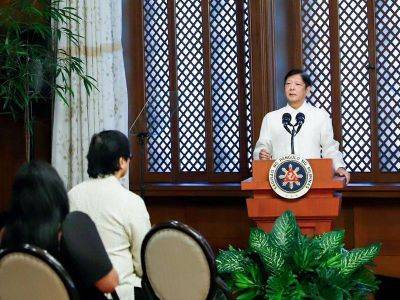BuCor seeks clear guidelines on application of GCTA law
THE Bureau of Corrections (BuCor) yesterday asked the Supreme Court to come up with clear guidelines on the implementation of Republic Act 10592, or the Good Conduct Time Allowance (GCTA) law.
BuCor Director General Gregorio Catapang Jr. made the plea in a position paper submitted to the High Court where he said the GCTA is a good law, but its application is somewhat confusing.
Catapang noted that the September 15, 2021 SC decision in Gil Miguel versus the Director of the Bureau of Prisons, has held, among others, that inmates who were convicted of murder and other heinous crimes were disqualified from availing the provisions of the GCTA.
However, Catapang pointed out that in the recent case of Maclang v. Hon. Leila de Lima where the former was convicted of the heinous crime of kidnapping for ransom, the SC held that he is entitled to the benefits of RA 10592 and referred the case to Branch 206 of the Regional Trial Court of Muntinlupa City for the determination of the length of time he has spent in actual confinement and the computation of his GCTA, and whether he is entitled to immediate release on account of the full service of his sentence.
Catapang said that as of March 17, 2023, the BuCor has listed 136 persons deprived of liberty (PDLs) who have overserved the maximum forty-year period of imprisonment if the agency is to apply the GCTA.
“What is holding the BuCor from releasing them and processing the papers of other deserving PDL’s is the Miguel case and the 2019 amended IRR of the GCTA law,” he said.
In the same submission, Catapang also sought clarification from the High Court as to the duration of penalties – if it is computed at 30 years or 40 years, as well as the issuance of clear guidelines specifically on the correct formula on how to compute GCTA, Special Time Allowance for Loyalty, Time Allowance for Teaching and Mentoring and Credit for Preventive Imprisonment.
Citing the reference to reclusion perpetua found in Article 70 of the Revised Penal Code, which, in laying down the rule on successive service of sentences where the culprit has to serve more than three penalties, provides that “the maximum duration of the convict’s sentence shall not







